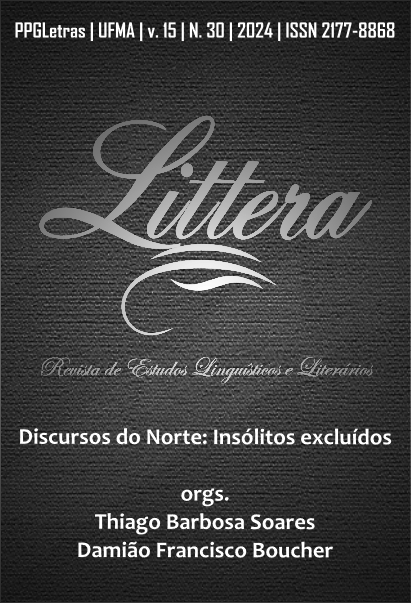Municipal public school of Parintis - AM: teaching and practice of literary reading in an 8th grade class of elementary school
DOI:
https://doi.org/10.18764/2177-8868v15n30.2024.15Keywords:
Reading Practice, Elementary Education, Parintins, AmazonasAbstract
The literary universe is grand and vast, and it is evident that it cannot be fully presented in a few hours of class. However, the current educational system shows a noticeable lack of encouragement for reading. The time allocated to reading is minimal compared to the time dedicated to teaching grammar, and when literary texts are studied in the classroom, their role often focuses on teaching Portuguese grammar. In our article, we aim to address the reality of students growing up in a society with little encouragement for reading literary texts and less access to books, as evidenced by the low literacy rates in Brazil according to the Progress in International Reading Literacy Study (PIRLS) 2023. Our research is based on actionresearch and bibliographic studies with a qualitative approach and a dialectical focus, as we investigate a
social reality and the factors that influence it, analyzing reading encouragement practices in the classroom considering the new educational guidelines proposed by the BNCC (National Common Curricular Base) in a public elementary school in Parintins – AM. Our theoretical framework includes studies by Calvino (2002), Cosson (2014; 2020), Culler (1999), Freire (1989; 1992), Lajolo (2011), Todorov (2009), and Zilberman (1991). Thus, we will demonstrate that the classroom, the school, and the family can inspire children and adolescents to embrace reading, not merely as an educational requirement to distinguish students, but to highlight the benefits that the reading habit provides.
Downloads
References
ARISTÓTELES. Poética. Trad. Ana Maria Valente. Lisboa: Fundação Calouste Gulbenkian, 2008.
BRASIL. Base Nacional Comum Curricular: educação é a base. Brasília: MEC, 2017.
BRASIL. Lei nº 13.146, de 06 de julho de 2015. Institui a Lei Brasileira de Inclusão da Pessoa com Deficiência (Estatuto da Pessoa com Deficiência). Disponível em . Acesso: 6 ago. 2023.
BRASIL. Instituto Nacional de Estudos e Pesquisas Educacionais Anísio Teixeira. Brasil no Pisa 2018. Brasília, DF: Inep, 2020.
BRASIL. Instituto Nacional de Estudos e Pesquisas Educacionais Anísio Teixeira (Inep). Brasil no PIRLS 2021: Sumario Executivo. Brasília, DF: Inep, 2023.
BRASIL. Instituto Nacional de Estudos e Pesquisas Educacionais Anísio Teixeira. Índice de Desenvolvimento da Educação Básica: Ensino Fundamental Regular - Anos Finais. Brasília, DF: Inep, 2021.
BRASIL. Instituto Nacional de Estudos e Pesquisas Educacionais Anísio Teixeira. Boletim da Escola: Saeb 2021. Brasília, DF: Inep, 2021.
CALVINO, Ítalo. Por que ler os clássicos. São Paulo: Companhia de Bolso, 2002.
COSSON, Rildo. Letramento literário: teoria e prática. São Paulo: Contexto, 2014.
COSSON, Rildo. Paradigmas do ensino da literatura. São Paulo: Contexto, 2020.
CULLER, Jonathan. Teoria literária: uma introdução. São Paulo: Beça Produções Culturais Ltda, 1999.
FREIRE, Paulo. A importância do ato de ler: em três artigos que se completam. São Paulo: Autores Associados/Cortez, 1989. (Coleção polêmicas do nosso tempo).
FREIRE, Paulo. Pedagogia da Esperança: Um reencontro com a Pedagogia do Oprimido. Rio de Janeiro: Paz e Terra, 1992.
LAJOLO, Marisa. Do mundo da leitura para a leitura do mundo. São Paulo: Ática, 2011.
TODOROV, Tzvetan. A literatura em perigo. Rio de Janeiro: DIFEL, 2009.
ZILBERMAN, Regina. A leitura e o Ensino da literatura. Curitiba: Ibpex, 1991.
Downloads
Published
How to Cite
Issue
Section
License

This work is licensed under a Creative Commons Attribution-NonCommercial-NoDerivatives 4.0 International License.
Direitos autorais Littera on line
Este obra está licenciado com uma Licença Creative Commons Atribuição-NãoComercial-SemDerivações 4.0 Internacional.









